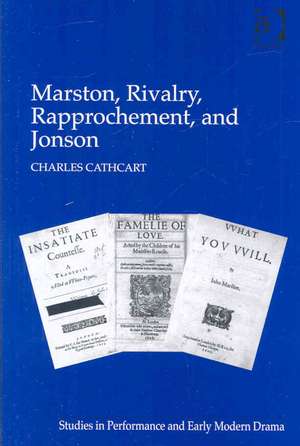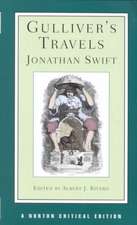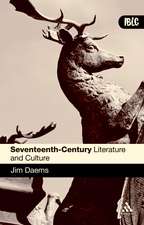Marston, Rivalry, Rapprochement, and Jonson: Studies in Performance and Early Modern Drama
Autor Charles Cathcarten Limba Engleză Hardback – 28 apr 2008
Din seria Studies in Performance and Early Modern Drama
-
 Preț: 356.79 lei
Preț: 356.79 lei -
 Preț: 317.52 lei
Preț: 317.52 lei -
 Preț: 285.87 lei
Preț: 285.87 lei -
 Preț: 273.16 lei
Preț: 273.16 lei - 9%
 Preț: 934.96 lei
Preț: 934.96 lei -
 Preț: 331.93 lei
Preț: 331.93 lei -
 Preț: 469.34 lei
Preț: 469.34 lei -
 Preț: 465.10 lei
Preț: 465.10 lei - 12%
 Preț: 315.37 lei
Preț: 315.37 lei -
 Preț: 489.26 lei
Preț: 489.26 lei -
 Preț: 469.34 lei
Preț: 469.34 lei - 18%
 Preț: 1056.14 lei
Preț: 1056.14 lei - 18%
 Preț: 1057.09 lei
Preț: 1057.09 lei - 18%
 Preț: 1106.02 lei
Preț: 1106.02 lei -
 Preț: 489.26 lei
Preț: 489.26 lei -
 Preț: 459.93 lei
Preț: 459.93 lei -
 Preț: 469.34 lei
Preț: 469.34 lei -
 Preț: 469.34 lei
Preț: 469.34 lei - 23%
 Preț: 320.27 lei
Preț: 320.27 lei - 16%
 Preț: 338.33 lei
Preț: 338.33 lei -
 Preț: 469.34 lei
Preț: 469.34 lei - 18%
 Preț: 1000.45 lei
Preț: 1000.45 lei - 13%
 Preț: 338.33 lei
Preț: 338.33 lei -
 Preț: 469.34 lei
Preț: 469.34 lei - 18%
 Preț: 1003.43 lei
Preț: 1003.43 lei - 18%
 Preț: 1006.30 lei
Preț: 1006.30 lei - 18%
 Preț: 1054.71 lei
Preț: 1054.71 lei - 30%
 Preț: 820.32 lei
Preț: 820.32 lei - 17%
 Preț: 343.65 lei
Preț: 343.65 lei - 26%
 Preț: 765.77 lei
Preț: 765.77 lei - 18%
 Preț: 1111.72 lei
Preț: 1111.72 lei - 16%
 Preț: 338.33 lei
Preț: 338.33 lei - 18%
 Preț: 1056.80 lei
Preț: 1056.80 lei - 18%
 Preț: 1003.43 lei
Preț: 1003.43 lei - 18%
 Preț: 1008.17 lei
Preț: 1008.17 lei
Preț: 698.36 lei
Preț vechi: 821.59 lei
-15% Nou
Puncte Express: 1048
Preț estimativ în valută:
133.65€ • 139.02$ • 110.33£
133.65€ • 139.02$ • 110.33£
Carte tipărită la comandă
Livrare economică 12-26 aprilie
Preluare comenzi: 021 569.72.76
Specificații
ISBN-13: 9780754656364
ISBN-10: 0754656365
Pagini: 198
Dimensiuni: 156 x 234 x 13 mm
Greutate: 0.46 kg
Ediția:1
Editura: Taylor & Francis
Colecția Routledge
Seria Studies in Performance and Early Modern Drama
Locul publicării:Oxford, United Kingdom
ISBN-10: 0754656365
Pagini: 198
Dimensiuni: 156 x 234 x 13 mm
Greutate: 0.46 kg
Ediția:1
Editura: Taylor & Francis
Colecția Routledge
Seria Studies in Performance and Early Modern Drama
Locul publicării:Oxford, United Kingdom
Cuprins
Contents: The war of the theatres and the virtues of conjecture; Love's Martyr, the 'vatum chorus', and speculative attribution; John Weever and 'Horace merit'; Why did What You Will appear in 1607?; The Insatiate Countess: emulation, appropriation and cuckoldry; The Family of Love and John Marston; The Family of Love and the 'poets' war'; Malvolio, Marston and Frederick Fleay; Afterword; Bibliography; Index.
Notă biografică
Charles Cathcart is an independent scholar.
Descriere
Investigated in this study are significant and unexplored signs of John Marston's literary rivalry with Ben Jonson. The centrepiece of the book is its argument that the anonymous play The Family of Love, sometimes attributed to Thomas Middleton and sometimes to Lording Barry, was in part the work of John Marston, and that it constitutes a whimsical statement of amity with Jonson.

















